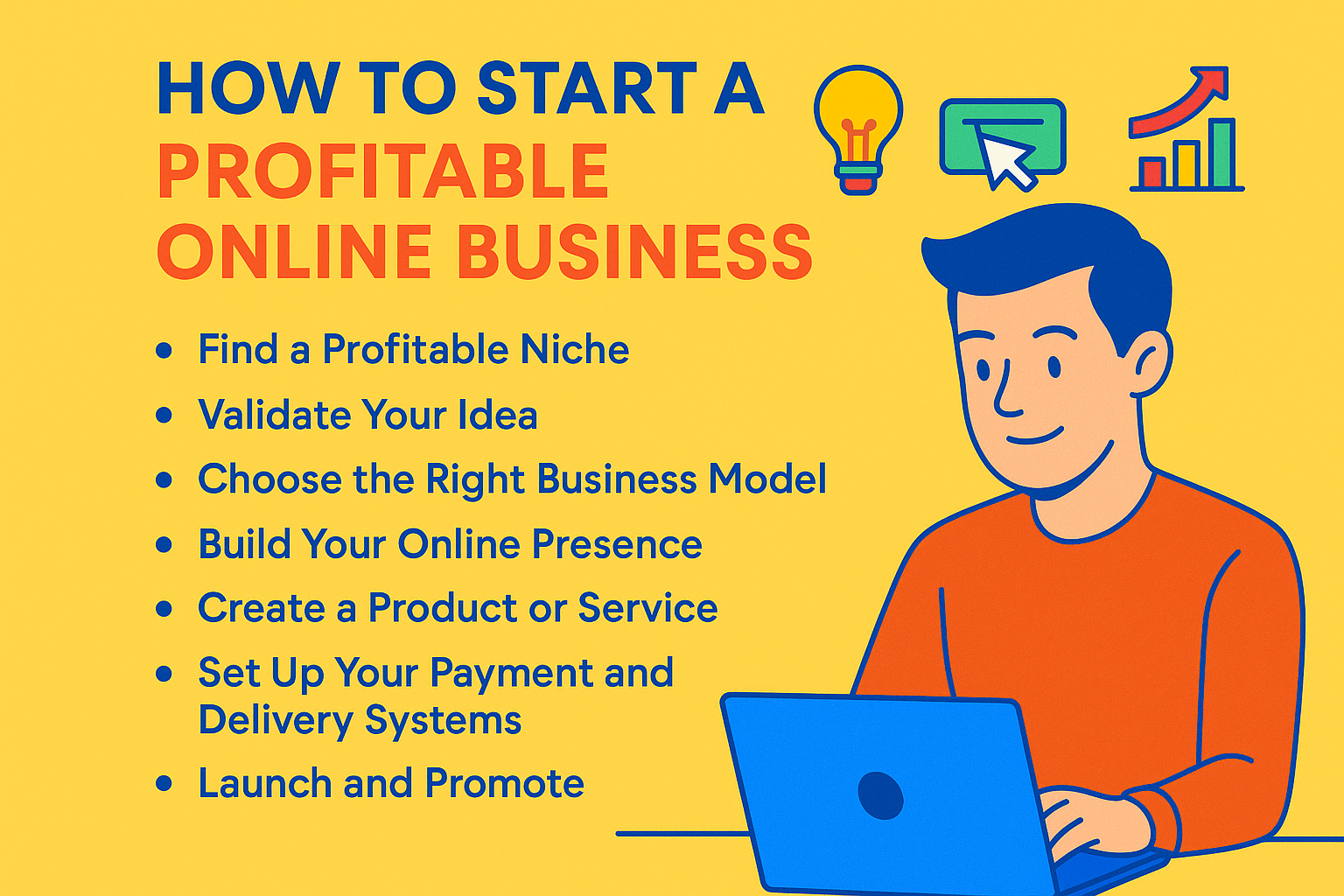The internet has opened up endless possibilities for entrepreneurs. Whether you’re looking to supplement your income or build a full-time business, starting an online business is one of the most accessible and rewarding paths in 2025. But how do you actually start and grow a profitable online business?
In this guide, we’ll walk you through step-by-step—from choosing your niche to making your first sale and scaling up.
1. Find a Profitable Niche
A niche is the specific market or audience you serve. The right niche balances passion, demand, and profitability.
Tips to Find a Niche:
- Solve a problem or need (e.g., eco-friendly products, remote work tools)
- Follow trends (e.g., AI tools, digital education, health tech)
- Research on platforms like Google Trends, Reddit, or Amazon bestsellers
- Choose something you enjoy and can talk about for years
2. Validate Your Idea
Before you invest time and money, make sure people actually want what you’re selling.
How to Validate:
- Conduct surveys or polls in relevant communities
- Check if people search for it (use tools like Ahrefs or Ubersuggest)
- Launch a landing page and run small ads to test interest
- Look at your competitors—if they’re thriving, that’s a good sign
3. Choose the Right Business Model
There are many ways to make money online. Choose the one that fits your skills and resources.
Popular Online Business Models:
- E-commerce (physical or dropshipping products)
- Digital Products (eBooks, templates, courses)
- Affiliate Marketing
- Subscription Services
- Freelancing or Coaching
- Content Creation & Monetization (YouTube, blog, newsletter)
4. Build Your Online Presence
To be taken seriously, you need a professional brand.
Essentials:
- A domain name and website (use platforms like Shopify, WordPress, or Wix)
- Business email and social media accounts
- Logo and brand design (free tools like Canva can help)
For International payment read this article Top Payment Gateways for International Clients in 2025
5. Create a Product or Service
Focus on delivering value and solving a problem. It doesn’t have to be perfect; you can always improve based on feedback.
If you sell:
- Products: Source from suppliers or create your own
- Services: Offer packages, pricing, and samples
- Digital Goods: Use Gumroad, Teachable, or Kajabi
6. Set Up Your Payment and Delivery Systems
Make it easy for customers to pay and receive what they bought.
Tools to Use:
- Payment gateways: Stripe, PayPal, Payoneer
- Delivery: Email (for digital goods), Print-on-demand, Dropshipping apps
- Invoicing: Wave, QuickBooks, Zoho
7. Launch and Promote
Now it’s time to get customers.
Promotion Strategies:
- Social media marketing (Facebook, Instagram, TikTok, LinkedIn)
- Email marketing
- Content marketing (blogging, SEO, YouTube)
- Paid ads (Google Ads, Meta Ads)
- Influencer partnerships
8. Measure, Improve, and Scale
Once you start selling, track everything.
Key Metrics:
- Conversion rate
- Cost per acquisition (CPA)
- Customer lifetime value (CLV)
- Website traffic and bounce rate
Use these insights to improve your offer, optimize ads, and build customer loyalty. As you grow, you can automate tasks, hire help, and explore new markets.
Final Thoughts
Starting a profitable online business is more achievable than ever—but it takes planning, consistency, and the willingness to learn. Begin with a clear idea, validate it, and focus on value. If you commit and adapt, you could build something not just profitable—but life-changing.




